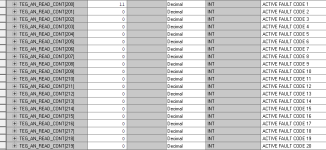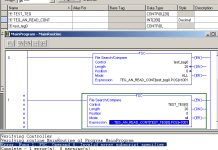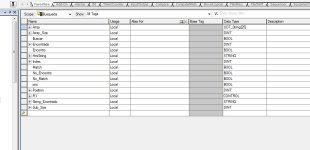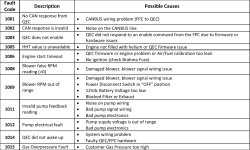Or logic For integer Value equal a number
- Thread starter cstep7263
- Start date
Similar Topics
I have a machine which is undergoing upgradation. As part of the process two SEW drives are being replaced., existing Gen B with new Gen C. The...
Hello
Dear users, I am writing about a problem that has been bothering me for a few days, i.e. I am trying to establish remote access to the Allen...
My PLC is currently running the program and the process is still live. One of my 1769-if16C cards values are all frozen but the card is not...
need to find C bits in the logic. They are hidden someplace!
Thank you!
Bob
Good day everyone. if you have a logic for 3 pumps (lead/lag/off), would you please email it to me? I really appreciate it!








